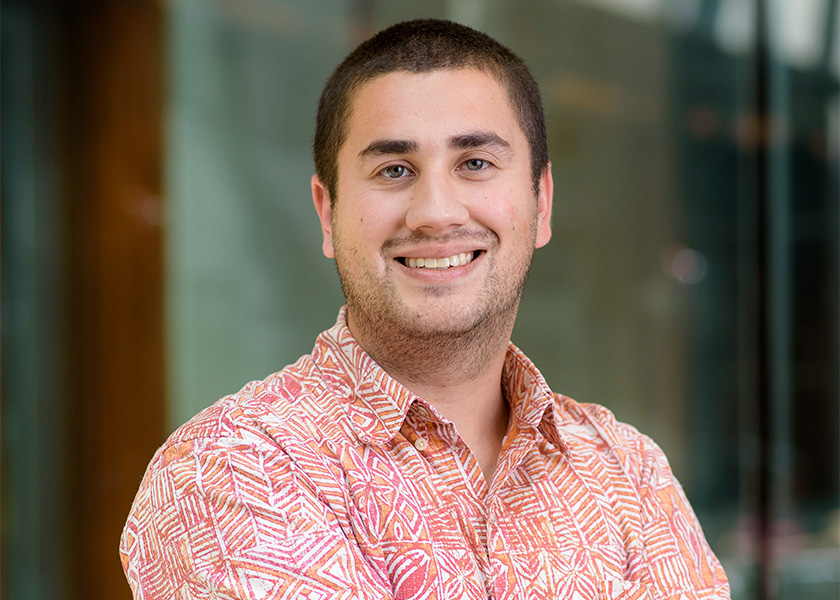Josiah Hester Named to Brilliant 10 by Popular Science
The multi-discipline list includes researchers “developing ingenious approaches to problems”

Northwestern Engineering’s Josiah Hester was named to the Brilliant 10 by Popular Science.
The list is an “annual roster of early-career scientists and engineers developing ingenious approaches to problems across a range of disciplines.” According to the magazine, “these thinkers represent our best hopes for navigating the unprecedented challenges of tomorrow—and today.”
Thinking of ways to navigate unprecedented challenges is what Hester does.
The Breed Junior Professor of Design and an assistant professor of electrical and computer engineering and of computer science at the McCormick School of Engineering, Hester studies mobile and pervasive computing, wireless sensor networks, and embedded systems. He designs battery-free smart devices and intermittent computing systems that are resilient to frequent and unpredictable power failures, including the first mobile video game console that operates without battery power. He is working toward a sustainable future for computing influenced by his Native Hawaiian (Kanaka maoli) heritage, and applies his work to mobile healthcare, infrastructure monitoring, and conservation.
“I’m really proud and excited that Popular Science has highlighted my lab’s work on sustainable computing,” Hester said. “This further demonstrates how sustainability has become a critical focus in the future of computing and society.”

In 2020, Hester developed the first mobile video game console that operates without battery power. Called Engage, the device looks and performs just like the original 8-bit Nintendo Game Boy yet relies on sustainable energy sources. While replicating the original 1989 Game Boy in both form and function, Engage’s hardware and software, developed in collaboration with researchers from Delft University of Technology in the Netherlands, represent the latest advances in intermittent computing. The console is part of a new class of small, inexpensive devices that rely on natural sources of energy to provide power only when needed.
Josiah has proven to be an innovative and highly productive scholar, demonstrating new ways to increase the sustainability of electronics. Dean of the McCormick School of Engineering
“Josiah has proven to be an innovative and highly productive scholar, demonstrating new ways to increase the sustainability of electronics,” said Julio M. Ottino, dean of the McCormick School of Engineering. “I am delighted to see him recognized by Popular Science this year.”
Hester’s work also includes efforts to develop smart face masks embedded with battery-free sensors to assess proper fit and monitor health. Hester and his team aim to integrate tiny, lightweight, battery-free devices into face masks for use in the hospital or home. By using already available sensors, such as accelerometers and motion and strain sensors, the device will be able to tell if the mask is too loose or improperly suctioned onto the face. It also will be able to sense if the mask wearer is fatigued or having difficulty breathing.
Popular Science also cited Hester’s work monitoring wild rice habitats and avian flocks in the Kakagon Sloughs, and his work with the Nature Conservancy to track migrating birds at Palmyra Atoll, an island in the Pacific Ocean.
Hester also recently received the 2021 Most Promising Engineer or Scientist Award from the American Indian Science and Engineering Society (AISES).